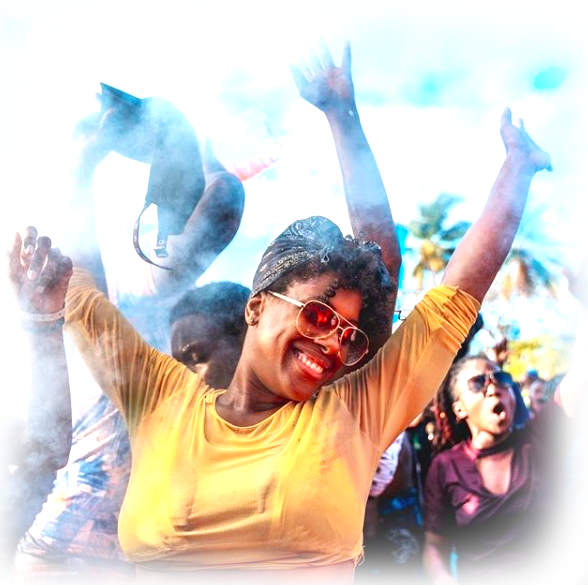Adilah and LaMont Muhammad are counting down to the day their lives change forever. The couple will pick up their well-established lives in Atlanta, Ga.––the city in which they met and married––and drop their anchors in East Africa. On March 30, they will become official citizens of Rwanda.
But they aren’t the first or only ones headed back to the Motherland—and choosing to live other places.
They join a long and growing list of Black Americans who are putting the United States in the rearview mirror, with their headlights often set on Africa.
This semi-collective exodus––also coined as “Blaxit,” a play on the term “Brexit”––is a symbol of Black Americans reconnecting with their roots in Africa, the Caribbean, and parts of the Americas. As individuals and families make the decision to leave, it’s also an indicator of possibly cutting ties with White supremacy in the future.
Searching for opportunity
It was two years ago that the Muhammads first began researching Africa. As entrepreneurs who own a catering business and do photography, frustrations began to grow with their progress in the U.S.
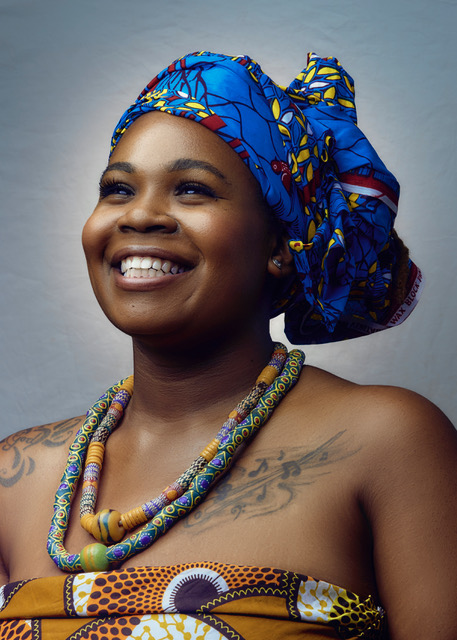
“As far as having a business, there‘s so many obstacles, credits, finances, competition and so forth,” Adilah Muhammad said. “That started for me, like I wanted to try something different, because I wasn‘t able to accomplish my dream here, the way that I wanted to.”
That desire prompted a search into other places where they could reach business milestones. The search began in Ghana, then expanded to Senegal, Tanzania and Rwanda. They later decided Rwanda had the best opportunities for them. But something else about living in the U.S. also weighed heavy on their hearts.
“The last two years of all the police killings, you know, [it] switched to just being cops killing Black men, and cops killing Black women as well,” she said. “It just really started getting to a dark place where we‘re like, why? Why are we still here?”
For LaMont Muhammad, the desire for growth and expansion drove his decision.
“Being here in America, and knowing what we know, and have been blessed to know, by the Teachings of the Most Honorable Elijah Muhammad, it becomes almost suffocating, because we can‘t really be all that which Allah has intended for us to be,” he said. “And so [leaving] is allowing for us to be able to explore not necessarily geographically, but to be able to explore all of that which we are, and grow into all that wisdom the Most Honorable Elijah Muhammad is teaching us.”
This vision became more tangible when they visited the country in January.
“We were able to really see that, wow, the experience that we have endured here in America has shaped us in a way that we are able to now be a greater benefit not only to ourselves here in the United States, but throughout the entire world,” LaMont Muhammad said.
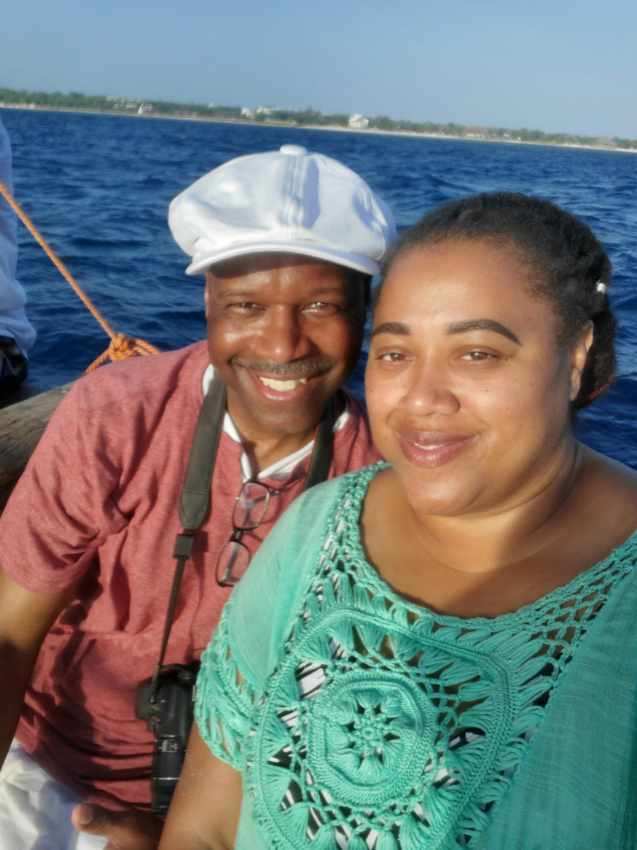
An important aspect about leave for the Muhammads is that they don’t abandon their experience in America.
“The intent is not to abandon being a Black man or woman in America … not to adopt any identity other than who and what we are, which is the fact of being an Asiatic Black man and woman,” Mr. Muhammad said. “That‘s our, that‘s our identity. And that‘s how we will go to Africa as an Asiatic Black man and woman, giving thanks to Almighty God, Allah and His Christ for giving us already our identity.”
One of those benefits the Muhammads hope to reap is a cheaper cost of living. This benefit has accrued to Black people who flock to Africa and find a greater advantage than what they’ve found in the U.S. It’s something that Deanna Mouassie, who now lives in South Africa, has reaped the benefits of.
‘I felt like my spirit had been here before’
Ms. Mouassie considers herself to be a California girl. She was born and raised in Southern California, a region called the Inland Empire to be exact. Growing up, she says she could identify as being Black, but she never felt like she was accepted among her peers.
“My friends were always from other places,” she said. “Even in primary school. And then when I entered college, almost exclusively, my friends were either from the Caribbean or [Africa] and I found that‘s where I felt most comfortable.”
Ms. Mouassie said many Black Americans she came in contact with had deep southern roots, but as far back as she can remember, her family had been rooted in California.
“I didn‘t grow up with some of the things that most people as Black Americans identify with, because I was removed from it,” she said. “So I think that’s some of why people are always like, yeah … you don’t act like us.”
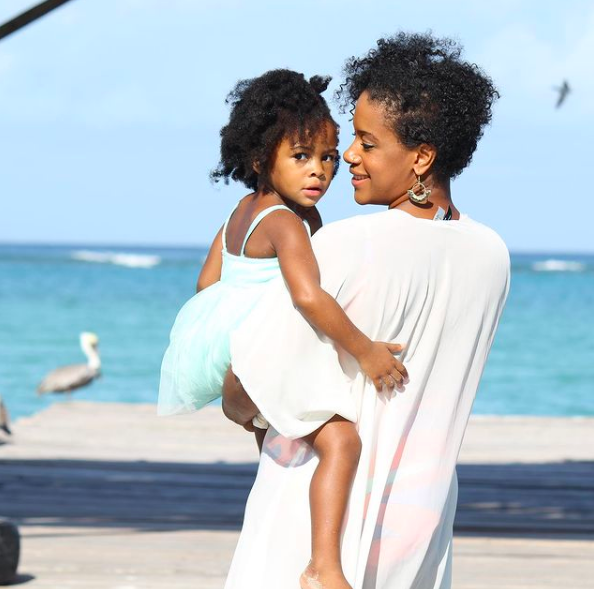
With the feeling of being a misfit in the U.S., as well as being comfortable around her friends from around the world, a seed was planted in Ms. Mouassie’s head to leave and go elsewhere. She began traveling to parts of the Caribbean and Africa in the early 2000s. She later got her Master’s in Public Health with the aim of moving to South Africa to work as an HIV researcher. She scrapped that plan and decided the Caribbean was the place for her. But on her first visit to South Africa in 2015, things changed.
“As soon as I landed in Johannesburg, I just felt like my spirit had been here before, which surprised me, because I was never really drawn to Southern Africa. I have always been more drawn to Central Africa,” she said. “But when I came here I was like … I feel like I had been here before. I felt comfortable from day one. And that’s when I decided, no, this is where I‘m supposed to be. The Caribbean is not it; Johannesburg is.”
2016 was when Ms. Mouassie decided to move all by herself, largely because her children were older and in college. The greatest benefit, she says, was meeting and marrying her husband, who’s from the Central African country of Cameroon. But another personal benefit was the relocation being part of her decision to live for herself.
“That’s my motto, that’s what I encourage people––follow your dreams, even if it’s not what’s the norm for everyone else,” she said. “Don’t let other people’s fears and limitations limit you.”
Similar to what the Muhammads are hoping for when they move to Africa, Ms. Mouassie says the cost of living is very affordable for her. As a woman in her 40s, she says this change in lifestyle went against what she was taught and made her question why she had been “slaving” so much in America.
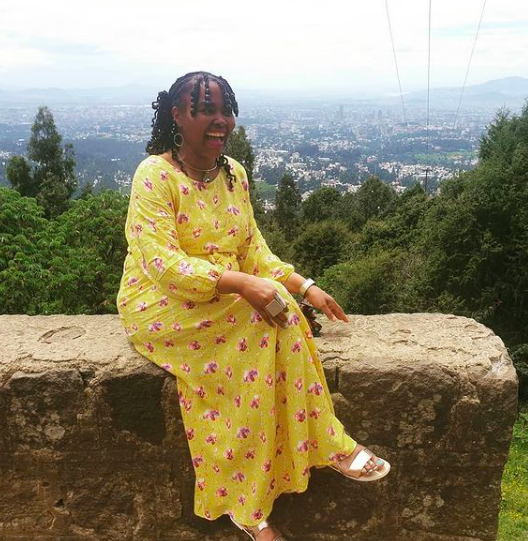
She believes this kind of mentality limits people and that in South Africa, people are encouraged to try new things and spread their wings.
“We, especially my generation, were told to go to school so you can get your degrees and even get you a good government job,” she said. “I’ve had several big government jobs that I’ve quit and people always like, how could you leave a government job and government pension? I’m like, this didn’t speak to my spirit.”
Even with the benefits of living abroad, one of the greatest challenges for Ms. Mouassie has been her family’s perception of her decision to leave. She says they believe she’s abandoned her children, but also says her daughter doesn’t see it that way.
One thing that’s not as much of a struggle for her? Grappling with Whiteness. She says although South Africa is a Black country on the surface, apartheid does still exist. White people are the minority, but they still control much of the country, which leaves many people who work there feeling like they’re dealing with the same power structure found in the U.S, she says. But it’s a different story if your work is elsewhere.
“I don’t work here, so, I don’t even, I’m telling you, I don’t even think about White people at all, which is something at home, you have to deal with it,” she said. “And I’m not anti-White, but I am anti that burden and big elephant of Whiteness that Black Americans feel they always have to have. Even the ones who want to feel like they’re pro-Black, they still always look at things through the White gaze.”
This difference of racial dynamics is felt across the spectrum of Black Americans who move to Africa, and other places.
The freedom to be fully Black
Tiffanie Drayton says when she moved to Trinidad and Tobago in 2013, being surrounded by Black people had a great impact on her. At the time, she was 23.
“It’s really the most … I would say, breathtaking, kind of grounding, or inspiring feeling that I’ve ever felt because you‘re just so at home and at peace,” she said. “I think a big part of it is peacefulness. Like no longer having to have that fear or no longer having to put on that constant mask.”
Ms. Drayton was born in Trinidad but came to the U.S. at the age of four and had no recollection of home. Similar to Ms. Mouassie, Ms. Drayton never felt fulfilled.
“I was like wait a minute,” she said. “Why don’t I ever enjoy myself when I go out? Why is it [that] no matter what I achieve. I don’t feel like I have achieved anything? There were all of these really hard questions.”
She finally gained a sense of understanding when she visited the country at 18 years old.
“It was just like this reawakening because you can walk through a Black neighborhood and just be surrounded by Black people and be safe and be comfortable, and it was just really phenomenal, comparatively to being in America where, you know, I was always kind of having to run away from Blackness because in America, Blackness equals ghettoization and equals second class citizenry,” she said. “So you spend your life and that‘s what kind of results in that emptiness. Like you‘ll never get a full Blackness. So, coming to Trinidad gave me that experience of a full Blackness.”
For Jewel Reeves, she says she hasn’t had to think about her skin color living in Accra, Ghana. In mid-March, she hit her six month anniversary of living in the city, after leaving Washington, D.C., in September. The opportunity came to her thanks to the pandemic, when her job in the airline industry offered her a two-year paid leave since traveling was no longer in demand.
Ms. Reeves had traveled to South Africa before, but had never been to Ghana. In 2019, she visited for the Year of Return, when the world marked 400 years of transatlantic slavery. That year, Ghana’s president, Nana Akufo-Addo, invited people of African descent to the country to reclaim their roots.
“I feel like it was my first time being in Africa, even though I had been in Africa before,” Ms. Reeves said.
She described South Africa as being very westernized, which made it different from Ghana. However, both trips made her feel strong emotions.
“I felt like a sense of relief, a calming, a home feeling like comfortable like, it’s just so many emotions, I’m getting chills just thinking about it because I didn‘t know at that point that it was going to be like kind of that same type of body sensation in station that I have when I went to South Africa,” she said. “But it definitely was like me going to Africa all over again because it was so different.”
Even though being Black isn’t something she has to think twice about while living in Ghana, Ms. Reeves says classism is a big issue.
“Now that race is out of the picture, the next issue that people are competing for is financial status,” she said. “Did you go to school, did you not go to school? If you went to school, that means you have money. If you didn’t go to school, that means you’re poor. So now we take away race, that was another issue.”
Changing Black Americans’ view of Africa
Currently, Ms. Mouassie partially owns an arts business with her husband, who has dealt antique African art since 2005. Throughout her years of travel, Ms. Mouassie has collected African works of art, including beadwork, authentic clothing, dolls and more. Together, she and her husband run African Diversity Arts, with customers around the world, including here in the U.S.
“I feel like people should be able to access things from the continent without having to break the bank,” Ms. Mouassie said.
For the Muhammads, they plan to open a restaurant in Rwanda in July, establish a non-governmental organization, buy land and help to elevate villages. Another goal is to create a more positive view of Africa. In early March, they started a YouTube Channel called “The Residential Tourists,” born out of their love of exploring Atlanta. But they’re also using it to document their journey to Africa.
“Even for us, Africa was like taboo,” Adilah Muhammad said. “I’ve never had a desire to go visit Africa. We’ve traveled, but we’ve never said, let’s go to Africa.”
She said portrayals of Africa have been inaccurate, so that Black Americans don’t even desire to visit.
“[People] think Africa is this dry place where there’s starvation, there’s famine and animals walking down the street, and they’re savages. They make it that way, so that we don‘t even have a desire to go over there,” she said. “So the idea of documenting this journey and documenting it when we get over there is to release the shackles on individuals’ minds that, okay, we have these Teachings, and we have the full circumference of the planet Earth, but yet we limit ourselves to our states. … We want to document that everything that they taught us about that country, that continent is, is a lie.”
Through her YouTube Channel called “Candid Jewel,” Ms. Reeves encourages anyone who wants to take a leap of faith to the Motherland, to do so. She has videos laying out the steps to move abroad, Ghanaian food vlogs, as well as candid conversations about living in Ghana.












